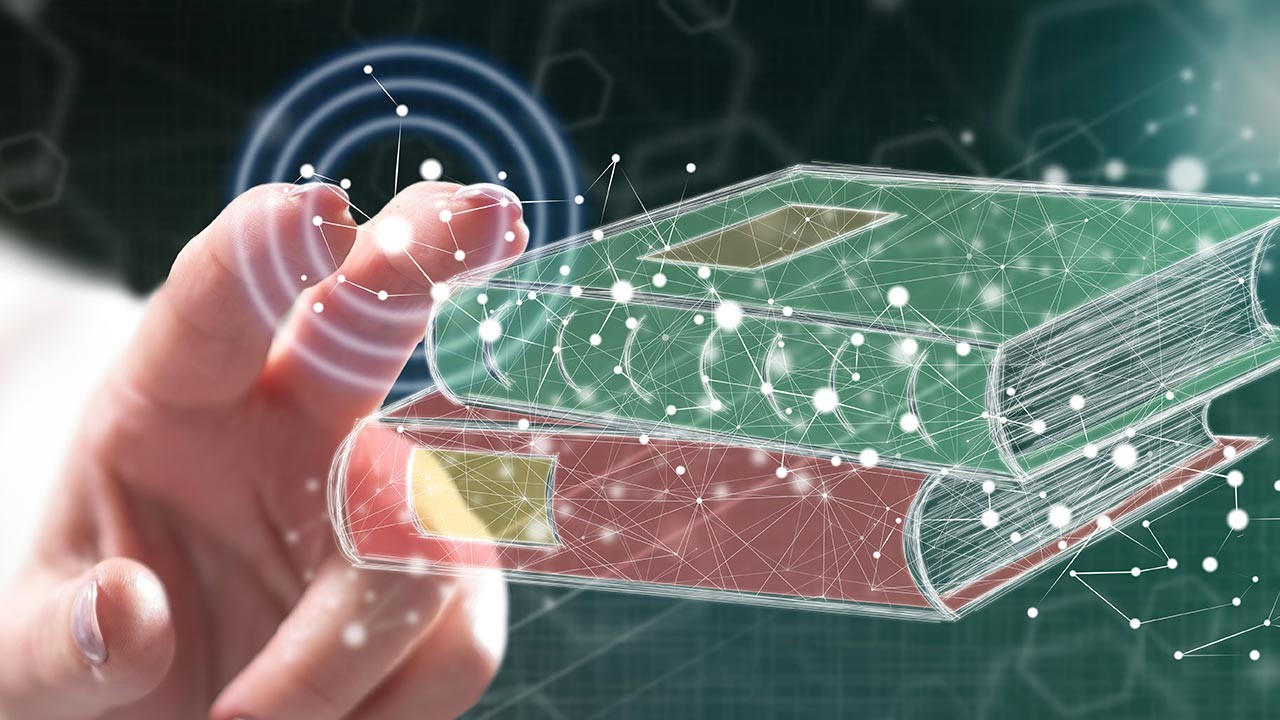How was this content?
What Amazon CTO Werner Vogels’ predictions for 2024 mean for startups
For the past two years, we’ve published a startup-specific take on Amazon CTO Werner Vogels’ yearly predictions for technology (check out 2023 and 2022). Werner traveled the world to speak with cutting edge startups and technology companies in Now Go Build (2018 - 2022). From this and his work as CTO, he creates a list of technology predictions for the following year and beyond. In past years, these predictions have included how modernized supply chains will drive innovation (2022), the impact of artificial intelligence (AI) tools on developers (2021), and how cloud computing at the edge will drive new levels of internet of things (IoT) integration with devices all around us (2020).
For 2024, Werner’s four predictions build on both prior years’ predictions, but also introduce new trends impacting opportunities for startups. The 2024 predictions:
- Generative AI (gen AI) becomes culturally aware
- FemTech takes off
- AI assistants redefine developer productivity
I'm excited to share our views on how these predictions will impact the world of startups.

1. Generative AI becomes culturally aware
In 2023, we saw gen AI take the world by storm. It’s dominating tech, impacting startups and enterprises alike, and everyone – tech background or not – is proving what’s possible with prompt-driven creativity. Werner’s first prediction for 2024 focuses on one of the key challenges gen AI faced in 2023: cultural awareness. “For large language model (LLM)-based systems to reach a worldwide audience, they need to achieve the type of cultural fluency that comes instinctively to humans.”
In my experience, LLM-based technology can answer complex questions and create whole new bodies of text, but its ability to decipher the unique human qualities of a prompt, be it based on country of origin, race, or even within the same country but in distinct geographic areas, remains largely unsolved. As humans, when we're aware of the cultural differences or expectations of other humans, we can shape our interactions with them in respect of that. For LLMs, that additional context hasn’t yet been easy to share.
I think this challenge presents opportunities and new concepts for startups:
- Werner mentions the numerous LLMs being created focused on non-Western data sources and training content, including those focused on the Middle East and Asia. However, we will likely have the need for LLMs trained against data representing every corner of the planet.
- Werner also comments on the importance of reinforcement learning from AI feedback (RLAIF) — where a model incorporates feedback from another model — as a key technology concept that will play an increasingly important role in building LLM-based applications.
- Another is multi-agent debate, where multiple instances of the same model, or even multiple models, generate responses and debate the validity of each response, eventually choosing a winner to respond back with.
These concepts are new, evolving, and potentially yet to be truly solved at a meaningful scale. As we’ve seen historically, with any major new technological concept, best and better practices, governance and compliance, and total cost of ownership need to be understood. I think we'll see startups create tooling and services to help more builders to build with these technologies and we'll see unique opportunities for startups to solve with these tools.

2. FemTech takes off
Werner’s second prediction acknowledges the historical gap in the involvement and inclusion of women in medical research and consideration generally by the medical community. “Women’s healthcare is not a niche market. In the United States alone, women spend more than $500 billion per year on care. They make up 50% of the population and account for 80% of consumer healthcare decisions.”
Over the past few years, we’ve seen a sizable increase in funding for women-led startups, including startups founded to solve issues around fertility, menstrual care, and menopause that use predictive analytics, machine learning, and device-aided solutions. Werner states: “...wearables will provide users and their doctors with an abundance of longitudinal health data that can be analyzed. Where today, more than 70% of women go untreated for menopause symptoms, increased education, availability of data, and non-invasive solutions will dramatically improve outcomes—and it goes well beyond OB/GYN care.”
In 2024, I'm almost certain that trend will continue upward, with more and more FemTech startups and founders to learn from, investor interest and funding, and access to technology to drive innovation to and assist women in tackling women’s unmet health needs around the globe.

3. AI assistants redefine developer productivity
In 2021, Werner predicted that AI assistants would become powerful aids to developers and builders of software. Since then, I’ve seen the impact that AI can play with tools such as Amazon CodeWhisperer and the recently announced Amazon Q. Using gen AI, these tools have helped developers to write new code, debug issues in existing code, and find ways to improve even their code for performance, cost, or security. Now, these tools are expanding to help developers start from scratch and move on a new idea, or take concepts such as an issue or new feature idea and suggest the new code necessary to deliver them in an existing codebase. Beyond just code, AI-powered tools are helping operationally as well, providing capabilities to debug issues, help determine root cause, or highlight as an example expensive database queries.
Werner’s latest prediction on AI assistants highlights the potential for even more powerful capabilities, with AI assistants being true “sidekicks” in your day-to-day building. Think of AI assistants that can help with migrations, re-architecting, or upgrading language runtimes. “Unburdened by the undifferentiated heavy lifting of tasks like upgrading Java versions, developers can focus on the creative work that drives innovation.” As a former SysAdmin and DevOps practitioner, seeing how these types of tasks may become less of a drain of time is exciting to say the least.
For startups, I think this prediction highlights two possibilities, 1) how these tools can aid startups, and 2) for potential product ideas that can be built. For builders of all skill levels, AI assistants are proving to be helpful in accelerating “time to commit”: the time between an idea forming or beginning to work on correcting an issue and when code is committed into a developer workflow on its way to deployment. For small startup teams, this can be a force multiplier equal to additional team members. From an opportunity standpoint, I think the breadth and depth of tooling that can be built to help developers is still largely untapped. There’s huge potential to develop language and technology domain-specific tools, tools that can consider additional business or people context, and perhaps even rethinking the entire developer workflow.

4. Education evolves to match the speed of tech innovation
Werner’s final prediction for 2024 is how the pace of innovation is accelerating the pace of evolution of education. Growing up in the United States, I recall having textbooks that were often dated from the time my parents were in school. Thankfully history, the English language, and mathematics don’t change often enough to require new textbooks every few years. But the world of technology moves a lot faster, and teaching people with 30-year-old textbooks won’t prepare builders for the world of today.
Werner’s prediction talks about how newer models of learning and training have helped enterprises and small companies learn the latest and greatest and upskill/reskill existing workers with newer technology. “None of this means that traditional degrees are going away. This is not an “either/or” situation—it’s about choice.”
I regularly meet with startups started by founders with what might be considered “non-traditional” backgrounds in technology. For many of them, the thought that the knowledge gap might hamper their success can often cause doubts that they should continue on their journey. However, with newer forms of virtual learning and the ability to take guided and freeform training, these concerns can be more easily addressed.
As community-driven content on these platforms can move almost as fast as the technology domain itself, it means that staying at the forefront of new tech is also easier than ever. As an example, in Werner’s “Now Go Build” episode titled “Berlin,” he met with founders and developers, including speaking with the team behind ReDI School of Digital Integration. ReDI School offers technical training classes for refugees from around the world who have made their way to Berlin seeking sanctuary. They then help these students find roles in tech companies or to found their own startups. Similarly, think of the stay-at-home mom looking to re-enter the workforce in a new industry, the 20-year veteran looking to move on from the military, or a high school student who college just isn’t right for. In the past, this would likely present hurdles towards a successful career and future. Today, a driven individual can find the right pace and style of learning to build their brighter future.
Conclusion
Each of Werner’s predictions showcase how technology innovations can impact our lives in new and powerful ways. They also highlight opportunities for startups to build solutions that could drive incredible success.
At the heart of this is how connectivity and availability of internet-connected devices have made the world a smaller place than ever. Startups in the cloud can quickly bring incredible new concepts and ideas to life, and those concepts and ideas can be immediately consumed by people around the planet.
For you dreamers out there thinking about building the next great thing, there’s never been a better time to start than today. As always, we look forward to seeing what you build!

Chris Munns
Chris Munns is the Tech Lead & Advisor for the Startup Solution Architecture organization at Amazon Web Services. Chris works with peers at AWS on how to better support AWS’s startup customers and directly engages with helping hot startups overcome complex technical challenges. At AWS for over 10 years, Chris has previously led Developer Advocacy for AWS Serverless technologies, was the global Business Development Manager for DevOps technologies, and was a Solutions Architect in the early days of the AWS field. Before AWS, Chris held senior operations engineering posts at Etsy, Meetup, and other NYC based startups. Chris has a Bachelor of Science in Applied Networking and System Administration from the Rochester Institute of Technology.
How was this content?